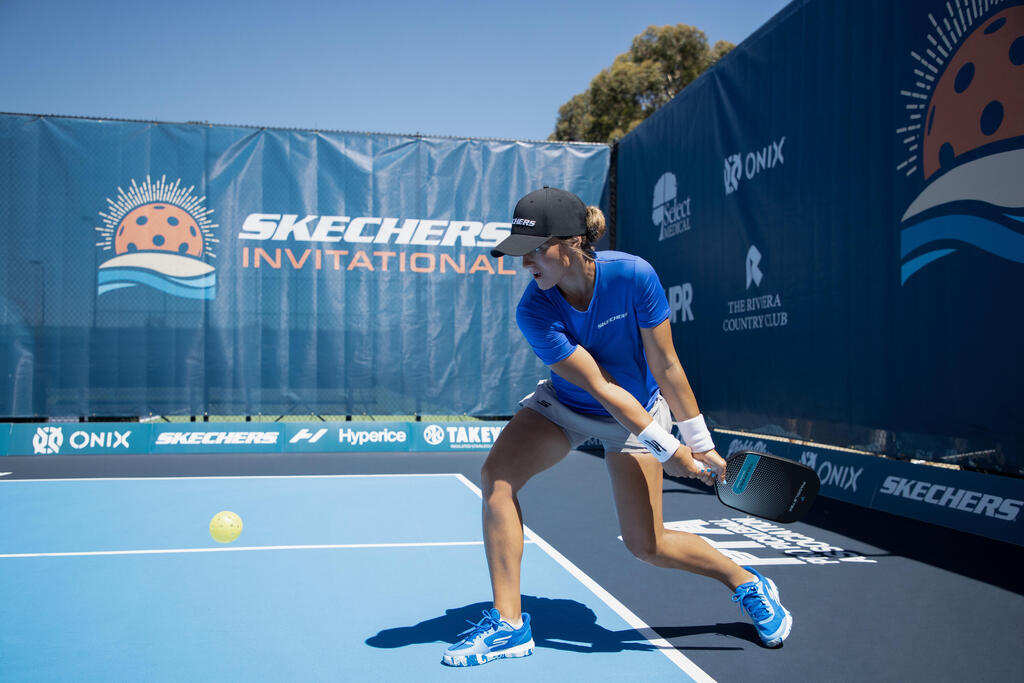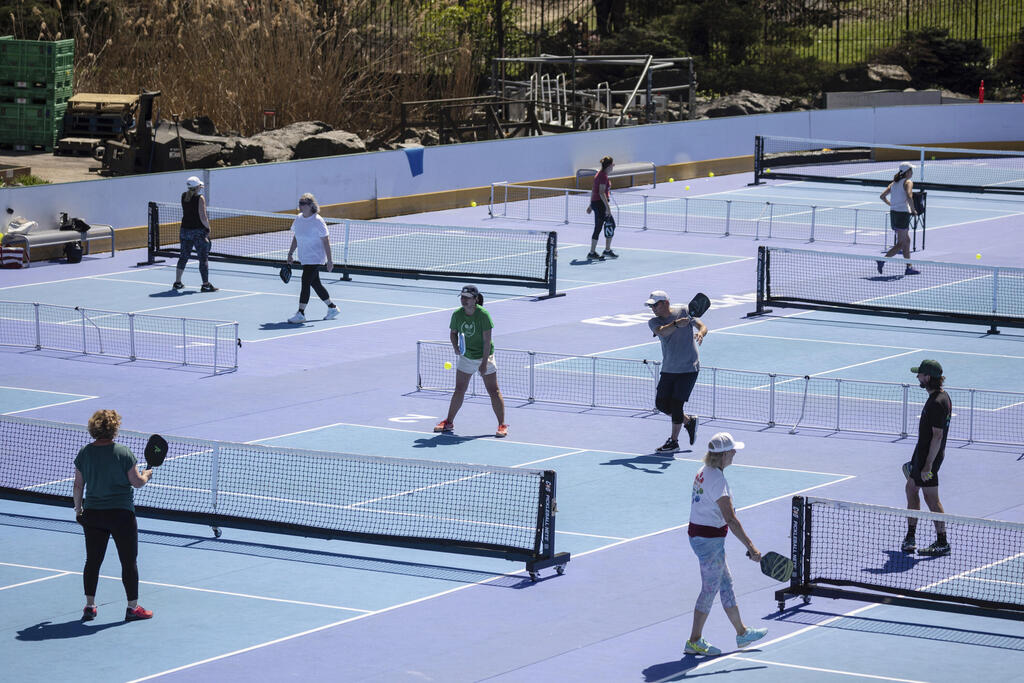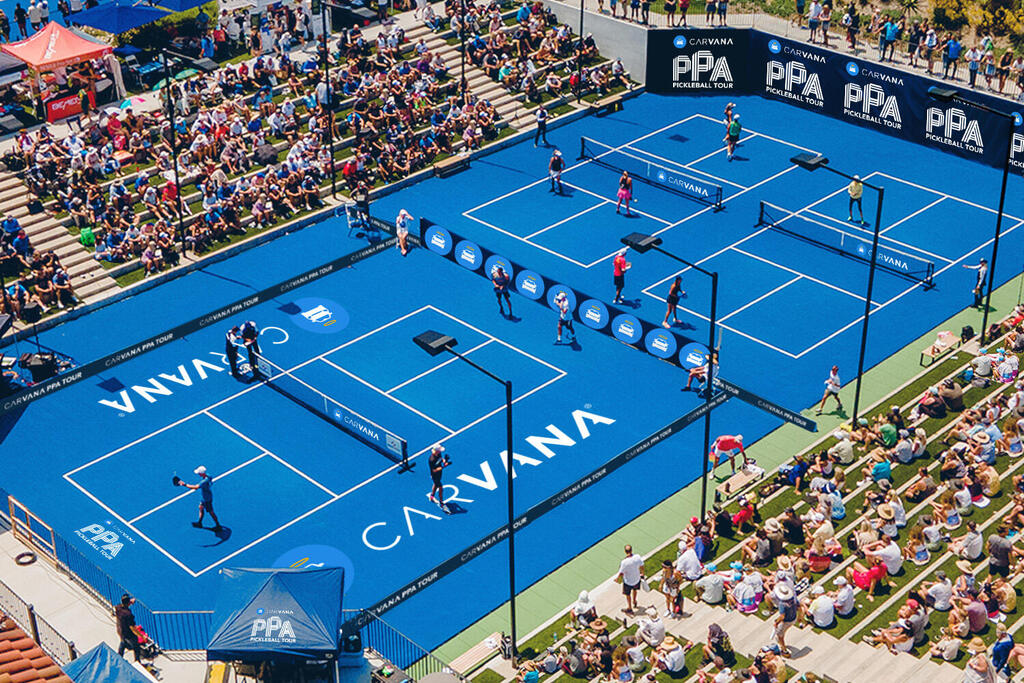Getting your Trinity Audio player ready...
LeBron James joins forces with Kevin Love and Draymond Green; following retirement, Tom Brady, driven by a desire to stay close to sports, invests in another club alongside former tennis player Kim Clijsters; football star Patrick Mahomes and tennis players Nick Kyrgios and Naomi Osaka are into it, along with actress Eva Longoria and model Heidi Klum.
Read more:
Since its establishment in 2021, the league continues to expand, and this year it will hand out awards to the tune of over $2 million; it is the fastest-growing sport in the United States, with a staggering 8.9 million people engaged in it in 2022 - an incredible 89% increase from the previous year.
It's not football or baseball, nor is it soccer. It's called pickleball - and any connection to pickled cucumbers is purely coincidental.
It is extremely difficult to explain this phenomenon because it makes no sense. Countless reports talk of the players' sense of community that attracts more participants. Perhaps it is the fact that anyone can play and enjoy it without committing to it professionally, that the effort required is not as great as in other sports, or that the well-developed marketing by the bosses has drawn attention and increased exposure.
However, all of these factors still do not explain this one bizarre fact - a game that combines tennis, badminton and table tennis, and may appear to most Israelis as "matkot (paddle ball) with a net," spreading like a fire across the sports scene at levels that other disciplines can only imagine.
And the thanks goes to COVID
In 1965, politician Joel Pritchard hosted friends at his summer home in Washington state, and the kids became bored. Pritchard told his 13-year-old son Frank to invent a game since that's what he used to do at his age.
The audacious child replied, "Why don't you invent a game?" So what does a reasonable person, who later becomes a senator, do? He invents a new sport to stop the kids from pestering him in a world with no screens to distract them.
As becoming of an American politician's summer home, there was also a badminton court. So, the father lowered the net, fashioned makeshift paddles and sent the young ones to play with a plastic ball.
The mother, a crew enthusiast who noticed that her husband took a little something from every game, named it "Pickleball" since "pickle" is the term used for a boat filled with leftover rowers from other boats.
The rest is history. Neighbors who were excited about the invention spread the word, creators started a company, established rules and began producing specialized equipment. Slowly but surely, the sport spread throughout the United States.
The sport finally exploded in popularity at the beginning of this decade, and not by chance. The COVID-19 pandemic pushed people to seek more fun and easy outdoor activities which men and women can play together without investing too many resources.
The league, which is organized in a system of centralized tournaments in one city that provide points, attracts thousands of spectators at each event, and the audience is only growing in size. Even those who are not at a competitive level enjoy the sport as a combination of fitness training suitable for everyone and socializing with friends.
And the frenzy is only spreading. A new startup is opening pickleball courts inside shopping malls; research has found that more and more Americans are planning their vacations based on the availability of places where they can play, and travel agents have started specializing in marketing such packages; many tennis courts are being converted for the new activity; major sports channels are broadcasting league games; and one of the slogans that stuck to the sport, "the game anyone can play anytime," is gaining traction and appealing to audiences of all ages, which marketers and advertisers are always trying to reach.
The Israeli angle
Beyond the popular and community interest, pickleball also appeals to professionals with a background in tennis who feel they have an opportunity to stand out and profit from a developing sport with more comfortable physical demands.
For example, Sam Query, who reached the Wimbledon semifinals in the past, made the transition to pickleball this year, and Noah Rubin, a former Wimbledon junior champion, explained why he changed direction.
"The tennis court is too big and there is too much ground to cover. The moment I discovered pickleball, everything clicked for me. It's the most accessible sport in an effortless way that I have ever encountered."
And here comes the Israeli perspective as well - Dekel Bar. At his peak, he ranked 570th place in the world in tennis and tried his luck for six years on the professional level but struggled with injuries.
A few years ago, he stumbled upon pickleball by chance, and today he shines in Las Vegas night events and is ranked sixth in the world. Quite an upgrade.
"Pickleball is a very social game and easy to learn. It's suitable for all skill levels, so the whole family and anyone can play,” Bar says. “It's a special, very enjoyable game and more practical than tennis in terms of court size and the number of courts that can be set up. With the size of one tennis court, you can fit four pickleball courts."
So when will it arrive at our shores?
"In my opinion, there is definitely potential to develop it in Israel. We need courts and coaches to explain and introduce the game to people, and it can gain a strong foothold in the country. Almost everyone who tries to play falls in love with pickleball and starts playing regularly. It is strongest in the United States and Canada. It is growing rapidly in other parts of the world as well, such as Australia and Asia, and it is slowly gaining momentum in Europe."
"It just started because I was being a sh*tty little kid,” Frank Pritchard said recently in an interview.





